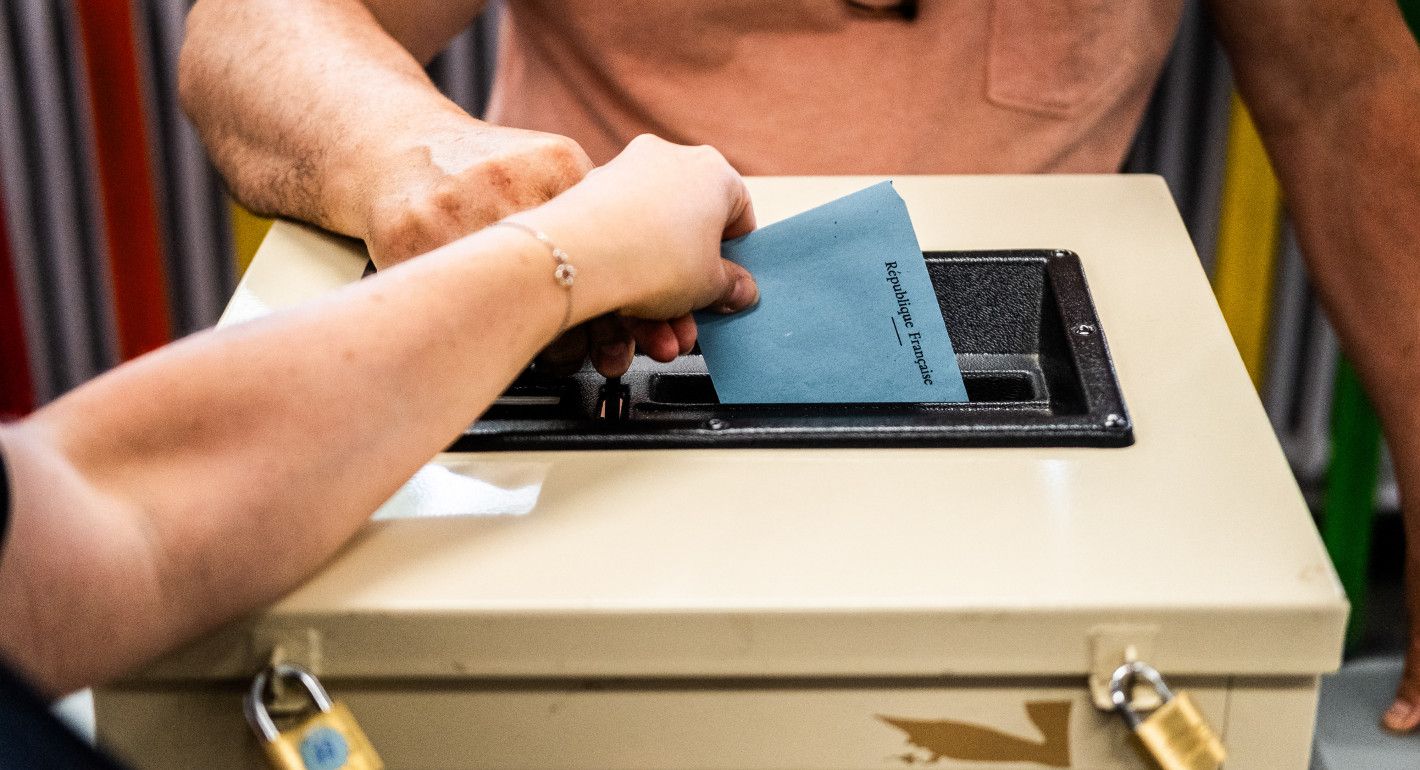This month, NATO leaders will gather in Washington to celebrate seventy-five years of the transatlantic alliance. This summit agenda item comes alongside weightier tasks such as firming up members’ defense spending commitments and support for Ukraine (short of accession), as well as appointing a new secretary-general.
The summit arrives on the heels of multiple European elections, each having an influence on the defense policies of the governments concerned. The twenty-seven countries of the EU recently cast ballots for their deputies to the European Parliament, and the United Kingdom and France are holding national elections. The more pressing agenda items are clearly areas where more influential extreme-right, pro-Russia political forces in Europe may create headaches for NATO. The three elections will undoubtedly impact NATO’s agenda and policies—but only over time. Here’s how.
The New European Parliament
The results of the European Parliament elections held June 6–9 in the EU (of which only Austria, Cyprus, Ireland, and Malta are not NATO members) served more as a referendum on governments in office rather than a debate on current EU affairs. The vote produced two main blocks: the center-right group known as European People’s Party (EPP) and the center-left group known as Socialists and Democrats. They will remain the two main pillars of the 2024–2029 legislature.
However, extreme-right forces scored big in Belgium, France, Hungary, Italy, the Netherlands, and Poland. As of publication, these parties are trying to coalesce within a single political group in order to garner more influence. They are also attempting to attract center-right politicians, exerting what Hungarian Prime Minister Viktor Orbán called a “gravitational pull” on EPP members. Their goal is to create a hard-right coalition large enough to become the second major political group (pushing the Socialists from that spot) and to disrupt current EU policies on Ukraine and Russia. Where Italian Prime Minister Giorgia Meloni will lean in these discussions will be an important indicator of her real support for EU and NATO policies.
One example of the right-wing forces’ weight on NATO decisions was the selection of the next secretary-general. On June 18, Orbán published the details of his negotiations with Dutch Prime Minister Mark Rutte, who was then a candidate for the job. In this unusual move, Orbán took advantage of his party’s victory in the European Parliament elections to disclose the conditions for his support to Rutte’s appointment—namely that no Hungarian troops or funds would be engaged in NATO operations in support of Ukraine. Such conditionality is not new: in past operations in Afghanistan, Kosovo, and Libya, NATO tailored the use of its members’ resources to their political preferences. What is new is Orbán’s publicity stunt, a move designed to showcase Hungary’s political clout and its goal of building a “European pro-peace coalition” in Brussels.
In the short term, more powerful identity-based parties in the European Parliament likely won’t negatively influence security-related EU policies and EU-NATO relations—but they will over time, at European and national levels. These parties’ relations with Russia are deep and will certainly be used by Moscow to impact NATO policy debates.
British Elections
In the United Kingdom, polls for the July 4 legislative elections show the Labour Party of Keir Starmer winning a large majority. If polls are correct, the political transition in London will be quick and, in the defense and security domain, the new Labour government will likely continue to be an active member of NATO and maintain aid for Ukraine. This should trigger a sigh of relief for transatlantic partners, as Starmer notoriously differs from his staunchly anti-NATO Labour predecessor, Jeremy Corbyn.
French Elections
The final results of the French election will likely emerge on July 7—the eve of the Washington summit. As of publication, this ballot is a cliff-hanger, likely resulting in either the extreme-right party Rassemblement National (National Rally) winning an absolute majority or in a hung Parliament, with three unequal thirds (extreme right, left extreme left, and the presidential coalition) each unable to form a government with a stable majority. In all cases, this situation will be problematic for NATO, casting a shadow on France’s ability to continue its steadfast support for the alliance and Ukraine. Even though France’s tradition gives its leader extensive powers in the security domain, the ballot may leave President Emmanuel Macron in a bind and France in deadlock.
In its 2022 presidential election platform, the National Rally had proposed three changes to the country’s security structure: an exit from NATO’s integrated military command; an end to joint military programs with Germany; and a possible alliance with Russia based on a common European security arrangement, counterterrorism cooperation, and convergence on regional issues. These positions are no longer part of the party’s doctrine for the 2024 legislative elections. Instead, National Rally president Jordan Bardella has taken a radically different stance. “France must not leave NATO’s military command while we are at war, because it would considerably weaken France’s responsibility on the European scene and, obviously, its credibility with regard to its allies,” he declared on June 19. Bardella repeated this position on June 24 when presenting his full program to the press. This statement might attract new voters, but it may not reassure NATO partners.
With France, NATO will have to navigate a lengthy political crisis and the unfamiliar influence of the National Rally, whether in government or in opposition, on the country’s foreign and defense policies. These uncertainties occur at a time when Russia brought war back onto European soil and has long maintained close contacts with the French (and European) rightist forces.
Ultimately, the reinforcement of pro-Kremlin and identity-based political forces across Europe and the resulting political uncertainties will inevitably cast a shadow on NATO. Their surge in various elections across Europe—and the simultaneous weakening of leaders such as Macron and Germany’s Olaf Scholz—may not disrupt the Washington summit, but it will introduce additional doubts for NATO’s future cohesion and support to Ukraine.
Carnegie This Week
Understand the world with the latest from our scholars around the world.



.jpg)

.jpg)